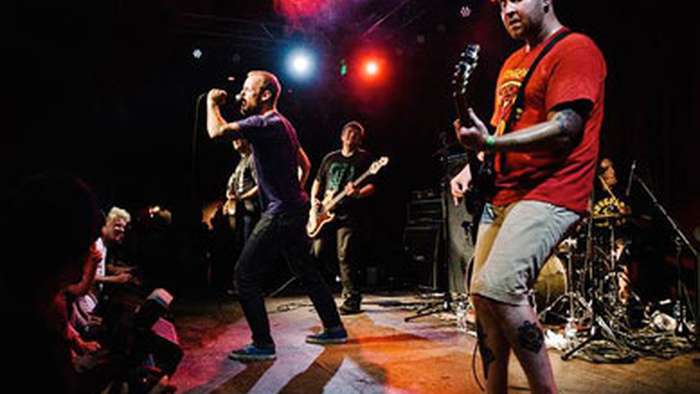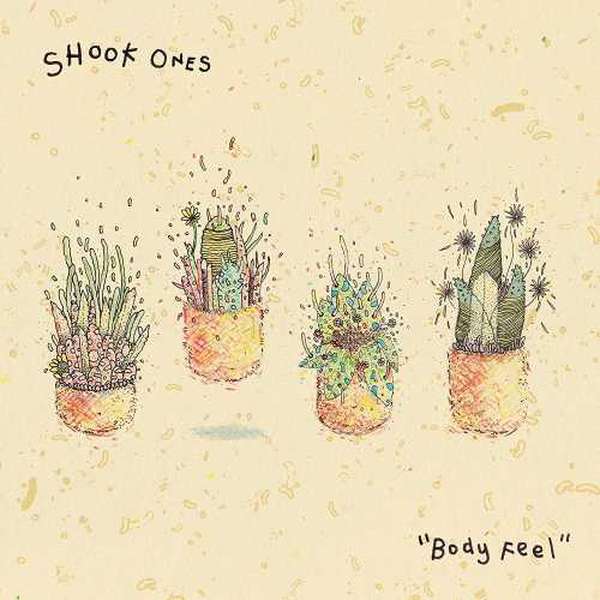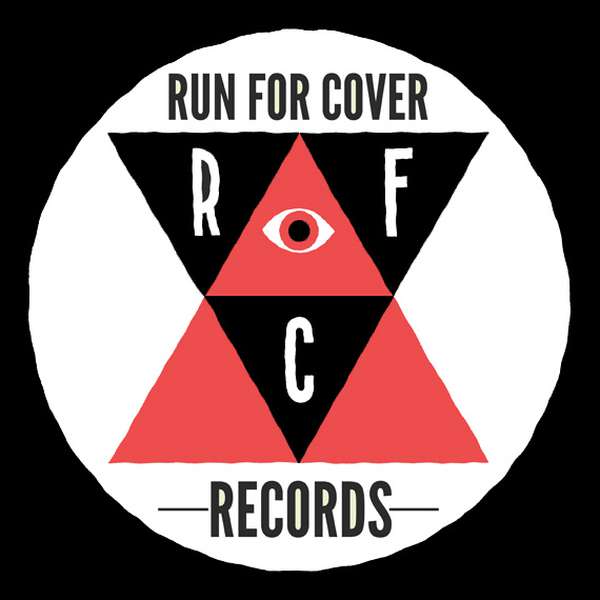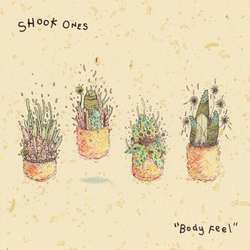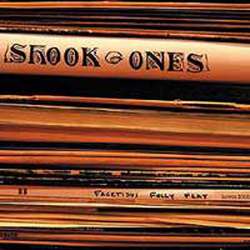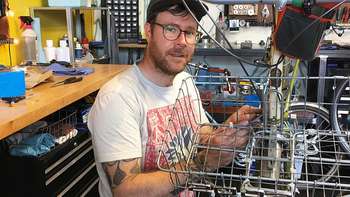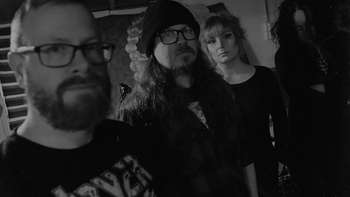Shook Ones are a melodic hardcore band that formed around the Seattle area in 2004. The band has not consistently released new music together, with each member involved in other bands and side projects that also take their time. However, listening to their new record Body Feel it remains clear there is still something special Shook Ones have when united. There are new levels of depth and sincerity the band has managed to explore, and honestly, it's refreshing as hell to find a band that truly cares about the art of making music. I recently caught up with everyone in the band (minus Kelly Aiken) before their record release show in Bellingham, Washington where we chatted about the making of Body Feel, the questions on their status as a band, and what this new record means to them.
Scene Point Blank: The last time you released music was in 2013, but your last full-length was in 2009. How does it feel to be here in 2018 at your record release show and how long has this record been in the making?
Scott Freeman: It feels awesome to have new music, to sum it up simply. It took a long time for it to become a thing, but it’s not that we all decided to just write new songs. Some versions of these riffs and ideas are things we’ve been kicking around for a long time. I like to think that we weren’t just like, “Oh, we gotta write a new record.” We all write music and it’s part of how we operate in our daily lives. For the first time, a lot of us were living in the same place again, which hadn’t been the case for a very long time. Everything aligned as much as it could possibly align because it still took forever. The songwriting wasn’t that long, it was getting together to actually record things.
Aaron O'Neil: And just to get together and organize things. We’ve jammed so many new songs together over the years that we had forgotten about songs. That was the most effort, getting together, outlining it, and making some sense of it to figure out what we wanted to do with it.
Bo Stewart: I feel like it’s the first time I remember Shook Ones having more songs—usually it’s like “Alright we got ten!”This is the first time we had more than ten songs to actually choose from and even left some on the table for later. It’s awesome to have too many songs instead of trying to fill the ten required.
Phil Jones: That’s a good point, I’ve never thought about it like that. When we were an “active band” I felt like it was more of I have to write a record, which is a shitty reason to write a record, because you have to. This is what was cool—we just kind of did. We started tracking the drums and the bass over the weekend of July 4, 2017 and got all the stuff finished before the end of the year at whatever pace we wanted to work on it. From the time we started tracking it took over a year to have it in our hands, but that’s not bad.
Bo Stewart: It was nice though because, like you said, it was quite the opposite of we have to write a record and more like, “Let's write one and see if anyone cares? We could take as long as we want, nobody even realizes we’re still a band so there’s no pressure.” And it worked because when it got announced a lot of people were like “What the fuck,” which is cool.
There’s a language you cannot define about writing songs, and I know there are trained musicians who follow formulas about music—I am not a trained musician and I do not follow formulas.
Scene Point Blank: Shook Ones have always had unique lyrics and the new record is no different. There’s a ton of interesting language and diction throughout the album including the overall title Body Feel. How’d you decide on that title and the themes you wanted to explore on this record?
Scott Freeman: Interesting you bring up diction. I do like putting together thoughts that maybe aren’t grammatically right because sometimes it doesn’t matter to me, there’s just a way I need to say something. And it’s cool because no one is grading me. As far as the record title, I don’t put a lot of stock in the titles. As you can tell, I think what the songs are about is what is most important. Titles you just gotta have. So the record title—I’ve always gotten flack every time I’m like, “Hey guy, I think this is what the record is gonna be called,” because for some reason over the years it’s always been up to me to come up with the record title. There’s a language you cannot define about writing songs, and I know there are trained musicians who follow formulas about music—I am not a trained musician and I do not follow formulas. Not because I’m like, “Fuck the training.” I just don’t know how it’s done. I go solely on how it comes to me as a feeling and I think that’s true of live shows, it’s true of how we write records, it’s true of how we record records—it’s like a body feel. I know it might not make sense to other people, but that is how I choose to write songs. I just let things happen and sort of steer it, but a lot of times I try to be as non-prescribed as possible and the only way I can think of how to describe it is a body feel.
Scene Point Blank: And how was collaboration on this record?
Bo Stewart: I’d say it was different in that everyone had a contribution to the record.
Phil Jones: Yeah, as far as everyone in the band wrote at least one song on the record. People who don’t play guitar in the band wrote guitars parts, etc.
Bo Stewart: There are also new members, at least from the last full-length, who wrote songs so that brings in a new thing. I mean they’re not that new but in the full-length sense. Especially because the last couple of singles, even though they’re a band effort, everybody was still in different places and may not have been on those tracks. We had a bunch of demos and I was like, “Oh is this what real bands do?” instead of it being like, “Well, we kinda have these songs practiced.” Dating back to the first full-length I did, I was still learning shit in the studio which is terrible. Being in an inactive band made it easier to take your time. Nobody even knows we’re still here, this is all kind of bubbling in secret, so it felt like we could take our time to narrow songs down and that felt different.
Phil Jones: And as far as it being collaborative, we tracked a majority of the guitars ourselves on our own time. Our buddy Jackson Long (SoundHouse) recorded Aaron and Bo live together, he’s a phenomenal engineer and really set the table for us to do more collaborative stuff as the record progressed.
Bo Stewart: Also previously, the first record we only spent a few days at one recording studio and a few days at another. The second record was way too many days where we spent the first four fucking around and then the next nine doing the record. But this was like we could do the drum and bass over two days and then just record here and there.
Scott Freeman: Yeah, Facetious Folly Feat was like four days recording and mixing.
Bo Stewart: Unquotable A.M.H. was like 12 days, but all in one big chunk and at the end you had it done. Whereas Body Feel was like months to a year—which can be a slippery slope—but we finished thanks to Phil putting in all the time he did on top of being a guitar player. Technically I’m currently in bands that have unfinished things from years ago. Doing things yourself isn’t always a good thing and it can just drag out, so I’m proud of everybody for finishing.
Music goes in cycles, and so when people polish off all the creativity and spontaneity it gets pretty stagnant, but if you can try and do something that is your own creative idea coming from within a group of people creating it, you know nobody is going to make anything like it.
Scene Point Blank: What was the hardest and/or best thing about finally releasing the new record?
Scott Freeman: I think the hardest, and this is always true for me, is that I feel like I certainly could have fucked everything up with terrible lyrics and singing. It stresses me out. I did all of the vocals with no one else was there and I really liked that and thought that was great. That’s how I demo stuff and I really wanted to take that same approach into the recording instead of going in and doing all the songs in one day. So I was very stoked to do that, but it also weighed on me for months while I was taking these songs that I demoed and wondered, “Did I take this thing that we all worked on and finish it off in a way that fucking sucked? Or does it help it be better? If it sounds good, does anyone give two shits about the content behind it?” That was easily the hardest thing and it gives me stomach aches to think about.
Phil Jones: Scott was working at a shockingly fast pace sending out a song or two that he finished each time and it was really exciting for us to get those. It was like the last layer to finish, which I think the hardest part for creative projects is taking your hands away and showing somebody because if you’re still working on it no one can evaluate it as a completed thing.
Bo Stewart: I’ll go back to maybe a difference in this record—this is the first time in Shook Ones history where I heard Scott’s vocals before the tracking of the record. In 2009 it wasn’t as easy to demo things, we all have GarageBand now or some sort of recording equipment or Phil who mixed it, so we’re lucky that we can demo things that sound pretty awesome. Which is cool because I do some bass-ery things and honestly some of the times I’d hear the finished product and be like, “Well, I wouldn’t have done that there because that just totally walks all over Scott’s shit.” So it was cool because I felt the whole picture. For me, hearing a Shook Ones record is really fun because I feel somewhat disconnected since I’m just the bass player and my shit is done in two days and then I walk away. I say that in a very awesome way because I get a Shook Ones record and listen to it, and I’m a fan. I don’t feel like a member at that point because in other bands where I’m definitely the more hands-on guy, and Phil will understand this especially when I’m also recording it, it’s impossible to listen to it.
Scott Freeman: Speaking of that, I think holding the record and all of these things are cool, but for me, the best part is even though I’m deep in the weeds on this thing I can still enjoy it now. It took me a few months of not even listening to anything because everyone is their harshest critic and it’s easy to hate anything you do even if it’s good. It’s cool to hear it and enjoy it even though I toiled on it for so long.
Bo Stewart: That’s special for me because Shook Ones are the only band I can really do that with. It feels like a different band, it’s awesome.
I’m very impressed when somebody can be gone for so long and come back as they’ve never left. That’s the loftiest hope, that maybe this won’t sound crazy.
Scene Point Blank: Punk and hardcore are changing genres now where a lot of bands that previously dominated those scenes are older with families, full-time jobs, and are no longer in their twenties. And although I think there is a wave of younger kids just discovering music from the 2000s, there’s also now an adult fanbase. How does this change the music you create now and what’s your take on the current music scene?
Phil Jones: So I think the Seattle scene is a little older. Aaron and I grew up together in the Bay Area and we were in high school playing music together, so he and I have done a variety of figuring out how we like to play music together. Some people as they get into their twenties or later try and rehash some things that they already know work. What was really cool about making this record with this group of people was that body feel idea Scott was talking about. We can do whatever we want and that felt a lot more like when we were working on music when we were younger. What comes out doesn’t have to be the best version of this style of hardcore or meet set expectations. Music goes in cycles, and so when people polish off all the creativity and spontaneity it gets pretty stagnant, but if you can try and do something that is your own creative idea coming from within a group of people creating it, you know nobody is going to make anything like it.
Aaron O'Neil: There were moments in the writing or organizing of this record where someone would say, “Is this too different?” or “How are all these different songs going to fit together on an album?” Luckily we all had faith in each other and the idea that it’ll fit together because we’re Shook Ones—honestly, once Scott sings, it’s all gonna sound like Shook Ones—and we can trust that we will write good music. And, if it’s not good enough, we can trust and have faith that we’ll recognize that in ourselves. We all felt comfortable enough branching out and writing the songs we wanted to, and I think the diversity in the record reflects that. I’ve gotten some really awesome feedback from a friend in particular who said, “Hey, it’s really not easy to make a grown-up punk record that’s not boring. Good job.” And that’s the best thing he could have said.
Bo Stewart: Yeah, I totally agree and that question hits home for me because for UnQuotable A.M.H. I was listening to a lot more of the peers in our group at that time. Fast forward to now when I’m not as connected to what would be considered our peer group. It’s interesting because I try to put myself outside of the band, and if I heard a new Shook Ones record was out, would I listen to it? There’s been a lot of reunion records, and it’s not a direct comparison, but I think about when Dr. Dre and A Tribe Called Quest put out new records I was like, “Wow, they somehow made this true to what they always sounded like, but also it’s new.” Because, like you said, a lot of times it’s really boring and you’re just rehashing your old thing. That’s not an inspiration for Shook Ones necessarily, but I was like, “Man, how did they do that?” How does Dre come out in 2018 with a record that sounds just like Dre, but also fits in the modern world? It’s incredible. So we’re basically just trying to make a record like Tribe’s new record—that’s what I was going for. I’m very impressed when somebody can be gone for so long and come back as they’ve never left. That’s the loftiest hope, that maybe this won’t sound crazy.
Scene Point Blank: I read previously about your take on older punk bands making a comeback—back then it was Lifetime and Get Up Kids—now it’s Jawbreaker. Do you guys see yourself in a similar vein to these bands since I think there are people that reminisce about your music. What are your thoughts on this?
Bo Stewart: Of course I’ve gotten a lot questions like, “What you made you guys get back together?” And you’re almost defensive—we’ve put out singles, we’ve played shows. But at the same time, I know what they mean. And I think that’s the thing, you can put out 7”s and singles, but nothing is like a new record. The last time we were in California and played shows it was an older crowd and it kinda hit that we can’t do this much longer without a new full body of work. Which makes sense; it’s been a long time and maybe a new record will appeal to a new crowd. Anybody that knows me knows the punk records I generally like are way later than the popular “cool ones” and that’s probably because that’s what record came out when I discovered them. There’s probably still young kids that follow Revelation and will go, “Oh hey, who’s this band?”
Phil Jones: There’s something too with those bands being able to go to any city and book a big show and it’s gonna sell out. That’s not why we’re doing this. We couldn’t if we wanted to. We’re not gonna tour because of where we’re at in our lives, that’s not on the table. So we’re not really doing that, but I love when those bands put out something new because they’re not just rehashing old songs. When bands do a new record, even if it’s not my favorite record, I really want to listen to what those musicians are doing creatively. Like how you were saying with Dr. Dre, and even Quicksand. I don’t think it’s my favorite Quicksand record, but I spent a long time listening to it and checking it out because these are creative people doing a thing. I think we’re however many levels of popularity removed from that, but we wanted to still make music and this is a great way to do that; we’re all really happy with what came out of that.
Scott Freeman: In general with the band shows are fun, but I don’t like touring. I never did. I like making music. And there’s a lot of bands that are like, “I just need a record because we gotta be on tour.” We were a band that was like, “We like music, we like to play music, we should probably tour some too.” And we did a lot. And not just because we got older, but I really didn't want to tour the US again and again and again. But I did want to keep making records. And it’s like Phil was saying, it’s cool when a band, even if you haven’t heard anything from in a while, is more interested in making a record not just interested in playing shows. We can play the same shows to the same crowds and keep playing the songs we know they like or we can put ourselves out there and see if we can write new songs they would like. Ever since I thought about playing music when I was a teenager, it was like you play music because you write your own songs. That’s what drives us to make records, and a new one now. It just happened to take 9 or 10 years.
Bo Stewart: I totally agree. I was actually thinking about this the other day—in all of my bands and all the music I’ve ever done—it’s never more exciting than holding the finished product. I’m like a 10 year-old from when I first did a demo and held the CDR in my hands, and maybe even before that hitting play/record on the tape deck in my bedroom.
Scott Freeman: Creating a thing from nothing!
Phil Jones: And maybe the last thought about it, a lot of us still play music in different projects that have different goals. Shook Ones is the five of us getting together and what came out of us was that LP. People are going to listen to that because we’re the Shook Ones and we’re really fortunate to have that opportunity.
